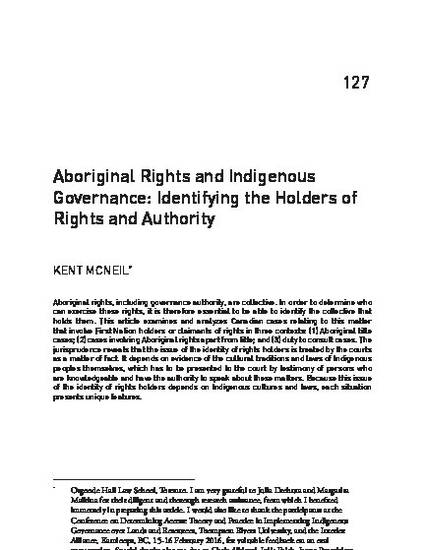
Aboriginal rights, including governance authority, are collective. In order to determine who can exercise these rights, it is therefore essential to be able to identify the collective that holds them. This article examines and analyzes Canadian cases relating to this matter that involve First Nation holders or claimants of rights in three contexts: (1) Aboriginal title cases; (2) cases involving Aboriginal rights apart from title; and (3) duty to consult cases. The jurisprudence reveals that the issue of the identity of rights holders is treated by the courts as a matter of fact. It depends on evidence of the cultural traditions and laws of Indigenous peoples themselves, which has to be presented to the court by testimony of persons who are knowledgeable and have the authority to speak about these matters. Because this issue of the identity of rights holders depends on Indigenous cultures and laws, each situation presents unique features.
Available at: http://works.bepress.com/kent_mcneil/165/
